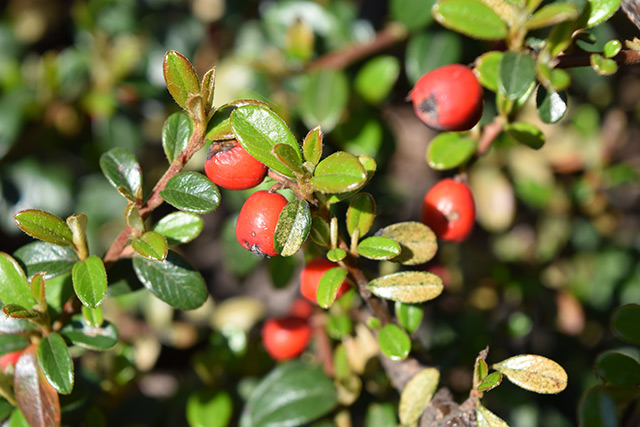The health benefits of berberine, a staple in Traditional Chinese and Ayurvedic medicine
04/05/2020 / By Evangelyn Rodriguez

Berberine is a compound found in various medicinal plants. It is extensively studied by scientists because many of its properties are beneficial to human health. In fact, berberine has been used in Traditional Chinese Medicine (TCM) and Ayurvedic medicine for centuries.
Berberine can be obtained from many sources, such as the Chinese medicinal herb called goldenseal, the tart, red berries of the barberry plant, the roots and stalks of Oregon grape, and the herbaceous shrub known as tree turmeric or Indian barberry.
In China, berberine is known as an over-the-counter antibacterial remedy that can relieve diarrhea. However, numerous studies also suggest that berberine can be used for the treatment of chronic diseases, such as heart disease, hyperlipidemia, Type 2 diabetes and cancer.
The health benefits of berberine
Berberine is a powerful compound that can influence the body at the molecular level. TCM and Ayurveda practitioners believe that it has various modes of action inside the body and can even cause changes within cells. Scientists also credit berberine with having multi-target effects, which allow it to address several diseases with minimal side effects.
Here are the many health benefits associated with berberine.
It helps treat bacterial infections.
Research suggests that the antimicrobial activity of berberine is unique. In a recent study published in Nature, researchers found that berberine not only prevented methicillin-resistant Staphylococcus aureus (MRSA) from forming biofilm – a process that involves bacterial attachment to a surface and growth – it also enhanced the bactericidal activity of antibiotics against MRSA.
On its own, berberine can also damage the cell membranes of bacteria and stop them from producing DNA and proteins, which eventually causes their death.
It can reduce inflammation.
Inflammation has long been linked to chronic diseases, such as heart disease, diabetes, gastrointestinal diseases and cancer. Hence its reduction is viewed as an important step in disease prevention.
According to studies, berberine has powerful antioxidant and anti-inflammatory properties, which can neutralize oxidative stress – the imbalance between the levels of antioxidants and harmful free radicals, which triggers inflammation. These properties allow berberine to prevent the development of inflammatory diseases.
It can help treat diabetes.
Besides reducing inflammation, berberine is also known for lowering blood sugar levels. A recent review published in the Endocrine Journal found that berberine treatment for 90 days significantly decreased the fasting blood sugar, postprandial blood glucose and glycated hemoglobin levels of patients with Type 2 diabetes.
Another study, which appeared in the journal Biochemistry and Cell Biology, reported similar results, and noted that berberine is a safe alternative to anti-diabetic drugs for patients with diabetic complications like liver dysfunction, kidney disease and heart disease.
It helps lower blood cholesterol levels.
Berberine’s ability to lower blood cholesterol is one of its most notable properties. Iranian researchers confirmed this in a recent study when they reviewed the results of preclinical trials involving berberine. They reported that besides hypolipidemic properties, berberine derived from barberry also has anti-diabetic, anti-obesity and blood pressure-lowering effects.
According to Chinese researchers, berberine is able to lower bad (LDL) cholesterol levels by increasing the expression of the LDLR gene. This gene is important for the synthesis of the LDL receptor protein, which increases the clearance of LDL in the liver. This results in a decrease in LDL cholesterol in the blood.
It may treat polycystic ovary syndrome (PCOS).
PCOS is a condition marked by high levels of male hormones in women. Described as both a hormonal and metabolic imbalance, PCOS is one of the causes of infertility and obesity in women.
Berberine is believed to be effective for the management of PCOS. An evaluation of berberine’s effects on PCOS patients with insulin resistance showed that it is just as effective as the anti-diabetic drug metformin in alleviating insulin resistance and improving glycolipid metabolism and reproductive endocrine condition.
It can fight cancer.
According to a recent study, berberine has anti-cancer effects. Researchers from Changchun University of Chinese Medicine in China reported that berberine from the herb known as Chinese goldthread can stop the growth of several types of cancer. These include colorectal cancer, lung cancer, ovarian cancer, prostate cancer, liver cancer and cervical cancer.
Berberine is a potent medicinal compound that can be used to treat a variety of health problems. Besides its plant sources, berberine can be found in herbal supplements, which are considered generally safe for consumption. However, to ensure that berberine does not interfere with your current medication, seek professional advice before taking berberine.
Sources include:
Tagged Under: alternative medicine, anti-diabetes, Ayurveda, Ayurvedic medicine, berberine, cancer cures, Chinese medicine, heart disease, heart health, herbal medicine, Herbs, natural cures, natural medicine, Naturopathy, phytonutrients, plant medicine, prevention, remedies, research, TCM



















